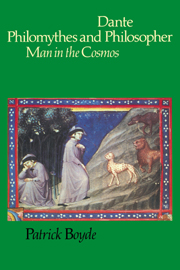10 - Generation and universal nature
Published online by Cambridge University Press: 17 September 2009
Summary
Aristotle's account of generation
the term ‘generation’ could be used quite properly of the making of a rain-cloud, a sapphire, a dandelion, a greyhound or a poem. As a first approximation, it is scarcely too much to say that it could refer to the production of any being or thing which had not been created. Its precise area of meaning in any given context, in any given medieval thinker, could therefore expand or contract to match any corresponding contraction or expansion in the referential field of the term ‘creation’. In a context where ‘creation’ was used in its widest sense to denote God's making in any form whatever, ‘generation’ would refer to the workings of nature. When ‘creation’ was used in its narrowest sense to indicate the production of something out of nothing–ex nihilo or nullo praesupposito–‘generation’ could refer to any process of formation in which some aspect or component of the new-made thing had pre-existed under some form or had been in any way presupposed–aliquo praesupposito. If ‘creation’ was reserved for the direct action of God as First Cause, ‘generation’ would be used of the activity of all secondary causes. And so, to revert to Dante's terminology, if ‘creation’ is reserved for the things that God makes sanza mezzo, ‘generation’ is the proper word for the production of all those things that he brings into being con mezzo.
- Type
- Chapter
- Information
- Dante Philomythes and PhilosopherMan in the Cosmos, pp. 248 - 269Publisher: Cambridge University PressPrint publication year: 1981



